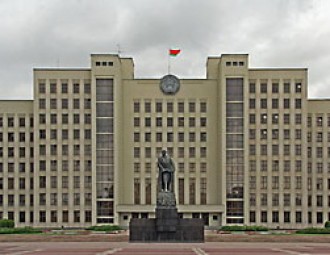Parliamentary election in Belarus to be more transparent for international observers, not opposition

The Belarusian authorities are willing to demonstrate greater openness and transparency in the parliamentary elections to the international observers.
The authorities have no plans, however, to change well-established procedures for the electoral commissions’ formation and the vote count. The Belarusian government is likely to provide the opposition with more opportunities in holding campaigning events, while ensuring total control over the election process and its results.
Last week, at the meeting with CEC head Yarmoshyna, President Lukashenka decided to hold the parliamentary elections on September 11th, 2016.
Minsk is attempting to use ‘liberal’ rhetoric in contacts with the international observers before the election campaign. The Central Election Commission has identified three areas for improving the transparency of the elections: formation of election commissions, consideration of electoral disputes and vote count.
Opposition and human rights activists are critical of the measures proposed by the CEC, and note that they are unlikely to lead to changes in electoral practices. In anticipation of criticism from the opposition and international observers, the authorities have promised to make further amendments to the electoral legislation after the parliamentary campaign.
Rules for the 2016 parliamentary election campaign are unlikely to change for the opposition. At a meeting on improving electoral legislation President Lukashenka instructed election officials to adhere to traditional practices during the election campaign, “expression of the will of the people, according to the established practice, should take place in an absolutely democratic and peaceful atmosphere and, most importantly, at the highest organisational standard, as it has always been the case”.
In addition, the president noted that the staffing policy in the election commissions would remain unchanged. He emphasised how important it was that the local administration preserved control over election commissions, “which should be composed of worthy representatives of labour collectives, political parties and public associations”.
Usually, there are virtually no or none at all representatives from the opposition and human rights defenders in the election commissions at all levels. At the same time, the opposition and human rights activists do not have sufficient human capacity to nominate their representatives at all polling stations in regions and in Minsk. In addition, opposition representatives often have lower social status, and, most importantly, less experience in the election commissions, than pro-government nominees, which objectively reduces their chances in even ‘transparent’ competitive selection process.
That said, the 2016 parliamentary elections will be held under the new rules, put through the test during the 2015 local elections. The main novelty is that a simple majority is now enough for a candidate to win a seat. Previously, a candidate had to win more than 50% of votes from the turnout. The turnout threshold has remained at 50% of voters.
These changes will substantially facilitate the task for the local authorities to ensure the necessary election results in Minsk and large cities, where competition among candidates is traditionally high. In addition, in the capital and major towns protest moods are generally higher than in rural areas. IISEPS Independent sociologists have marked a fall in voters’ confidence in public institutions in recent months, which may have an effect on the popularity of pro-government candidates.
"Modest" official election results in favour of pro-government candidates have allowed the authorities to preserve public confidence in the election procedures. According to independent sociologists, in the past decade, the majority of the population disagreed with the opposition’s claims of rigged elections. Presumably, this is one of the reasons for Belarusians not to take part in street protests.
The Belarusian authorities are likely to count on opposition candidates to steal votes from each other and on some protest electorate to boycott the elections. This approach would allow the Belarusian authorities to prevent accusations of rigged results by the opposition, which would be an important argument for Minsk in relations with Western observers.
The authorities are aiming to hold a conventional parliamentary campaign without significant changes to facilitate the participation of the opposition. However, they have strengthened the liberal rhetoric in order to demonstrate progress to the international observers.
-
03.01
-
07.10
-
22.09
-
17.08
-
12.08
-
30.09








































